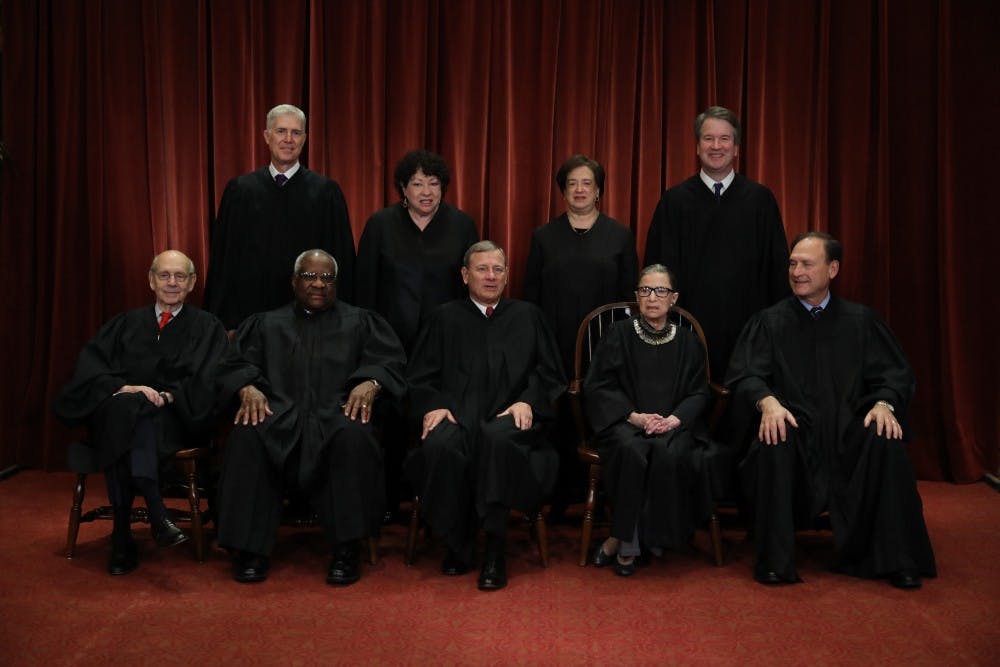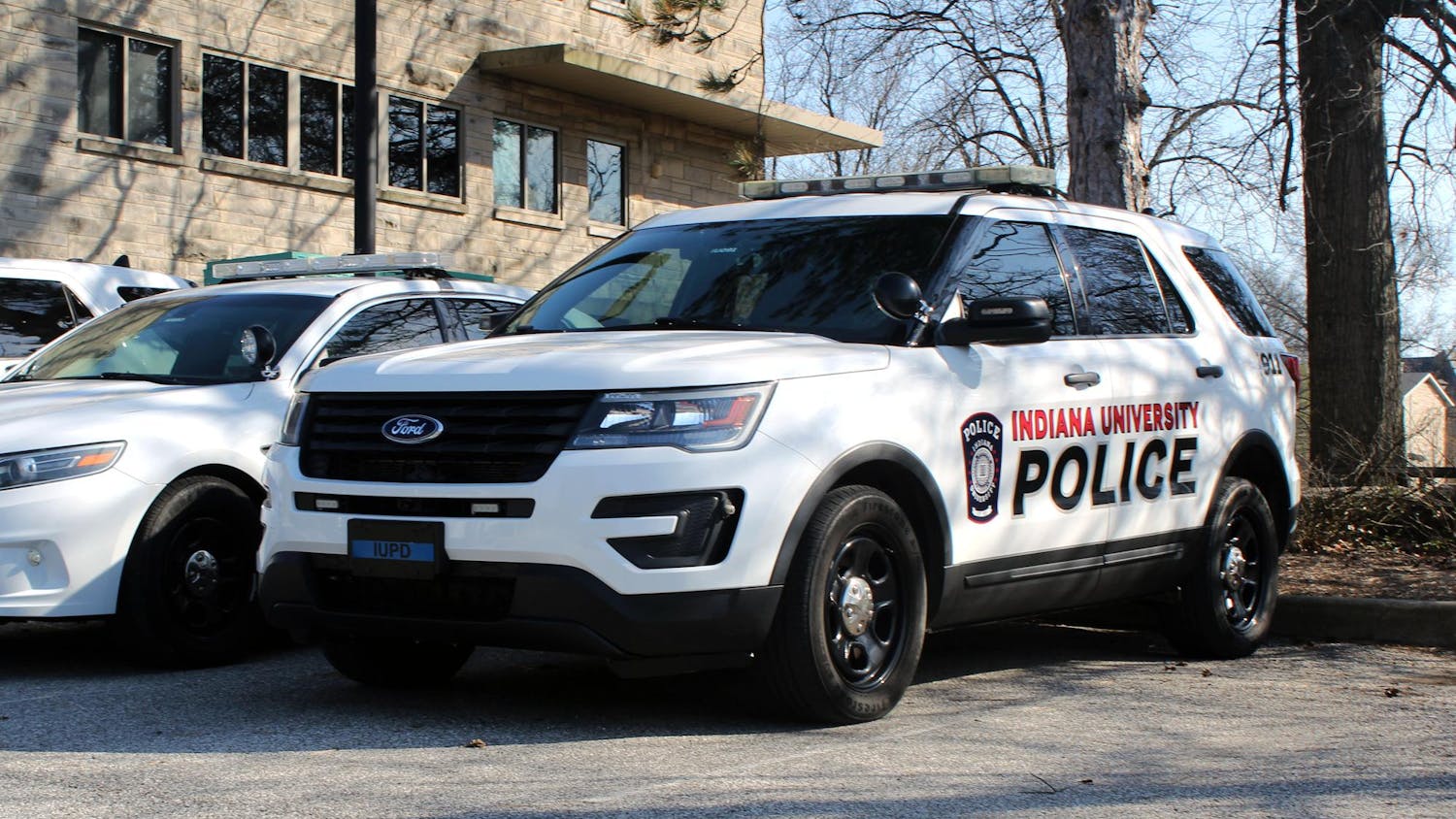By David G. Savage
Los Angeles Times
WASHINGTON – The Supreme Court this term will hear arguments in more than 50 cases that have been granted review so far. Here are some of the most closely watched :
RIGHTS FOR LGBTQ EMPLOYEES
Does the Civil Rights Act of 1964 _ which outlaws job discrimination "because of ... sex" _ protect gays, lesbians and transgender employees from being fired? California and 21 other states prohibit such discrimination, but Congress has not added that protection to federal law. In recent years, however, U.S. appeals courts in New York, Chicago and Cincinnati have ruled it is sex discrimination to fire employees because of their sexual orientation or gender identity. The Trump administration has urged the court to overturn those decisions. Arguments in three cases will be heard on Oct. 8. They are Bostock v. Clayton County, Altitude Express v. Zarda and R.G. and G.R. Harris Funeral Home v. EEOC.
'DREAMERS' VS. TRUMP
Was President Trump justified in revoking the Obama-era rule that shielded from deportation more than 700,000 young immigrants who entered the country illegally as children? In 2017, Trump administration officials said they would "wind down" the program known as Deferred Action for Childhood Arrivals because Obama's executive order was illegal and an "unconstitutional exercise of authority." Federal judges in California blocked the repeal on procedural grounds. They said Obama's order was legal so it could not be repealed by claiming it was illegal. "To be clear: we do not hold that DACA could not be rescinded as an exercise of executive discretion," the 9th Circuit said. The justices will hear arguments on Nov. 12 in Department of Homeland Security v. University of California.
GUNS AND CITY REGULATIONS
Can a city restrict gun owners from carrying a handgun in their car? At issue is an unusual New York City ordinance that allowed residents to keep a legal handgun at home but prohibited them from transporting it, even to a second home outside the city. The court has never ruled directly on whether the 2nd Amendment protects a right to carry a gun in public. Trump administration lawyers urge the court to rule that the right to "bear" arms includes the right to carry a weapon. However, the city's lawyers say the case should be dismissed as moot because its no-transporting regulation was repealed. Arguments in New York State Rifle & Pistol Assn. v. City of New York are set for Dec. 2.
STATE AID FOR CHURCH SCHOOLS
Must a state offer grants and scholarships to students in church-related schools if it offers such money to students in other private schools? Two years ago, the court broke new ground by ruling the 1st Amendment's protection for the "free exercise of religion" forbids discrimination against churches when the government gives grants to private groups. Most states, however, have constitutions that forbid giving tax money to churches. The Montana Supreme Court, citing its constitution, blocked a state scholarship fund from giving money to students attending church-related schools. The Trump administration argues such discrimination is unconstitutional because it imposes "a special disability on religious schools because they are religious." Arguments will be heard in January in the case of Espinoza v. Montana.
ABORTION CLINICS AND DOCTORS
Can Louisiana require that "every physician" who performs abortions have "active admitting privileges" at a nearby hospital, even if this would force all but one its abortion clinics to close? The high court in 2016 struck down an identical law in Texas, but a conservative appeals court in New Orleans upheld the Louisiana law. The key difference now is that Justice Anthony M. Kennedy, who joined liberals in the Texas decision, has retired and been replaced by Justice Brett M. Kavanaugh, who is thought to be more open to restricting abortion. In February, the justices by a 5-4 vote temporarily blocked the Louisiana law from taking effect. Now, they will decide in June Medical Services v. Gee whether the law puts an "undue burden" on women in Louisiana who seek an abortion.
PUBLIC CORRUPTION AND FRAUD
Is it a crime for a public official to give a deceptive reason for redirecting the spending of government funds? The justices have been skeptical of vague laws that give prosecutors too much leeway to decide what is a crime and who is a criminal. In June, they agreed to hear an appeal from Bridget Kelly, a former aide to New Jersey Gov. Chris Christie who was convicted of fraud in the so-called Bridgegate scandal. Prosecutors said she and others conspired to shut down two lanes of the George Washington Bridge into Manhattan as part of a "traffic study" when, in fact, their aim was to punish a Democratic mayor who had not endorsed Christie's reelection. They said the fraud cost $3,600 in overtime pay for toll collectors. Administration lawyers will defend the conviction in January when the court hears arguments in Kelly v. U.S.
Pending appeals that the court may yet agree to hear this term:
ABORTION AND ULTRASOUND IMAGES
Can Indiana require women seeking an abortion to undergo an ultra-sound the day before so they may view the developing fetus? A federal judge and the 7th Circuit Court in Chicago blocked this rule on the grounds it would force thousands of women to make two trips across the state. Indiana's lawyers appealed in Box v. Planned Parenthood and said the rule would "inform a woman's choice and afford her an opportunity to reflect." In May, the court upheld an Indiana law that requires the "cremation of fetal remains," but it refused to consider a proposed ban on abortions that were based on the sex, race or potential disability of the fetus.
WEBSITES AND ACCESS FOR THE BLIND
Can retailers be sued for violating the Americans With Disabilities Act because their websites or mobile apps are not accessible to blind people? The 9th Circuit Court ruling in a Los Angeles case cleared the way for a man who is blind to sue Domino's because he could not order a pizza online. The U.S. Chamber of Commerce and other business groups urged the court to hear the case of Domino's Pizza v. Robles.
ABORTION PROTESTS AND FREE SPEECH
Can Chicago and other cities enforce an eight-foot "bubble zone" outside abortion clinics to shield patients and the staff from "sidewalk counselors" who oppose abortion? The high court upheld such an ordinance in a case called Colorado vs. Hill, but several of the conservative justices say they want to overturn that decision. The appeal in Price v. Chicago urges them to do just that.
HOMELESS AND SLEEPING ON SIDEWALKS
Can cities restrict homeless people from camping or sleeping on sidewalks or in public places? No, said the 9th Circuit Court, if no other indoor sleeping places are available. The appeals court has jurisdiction in California and eight other Western states. Ruling in a case from Boise, Idaho, it said a city "violates the 8th Amendment" and its ban on cruel and unusual punishments if "it imposes criminal sanctions against homeless individuals for sleeping outdoors, on public property, when no alternative shelter is available." Lawyers for Boise called the decision "unworkable and nonsensical," and last month the city of Los Angeles joined a slew of other California groups in urging the court to hear the case of City of Boise v. Martin. But not all the briefs are in yet, and the justices are not likely to decide on whether to hear the appeal until the end of the year.




